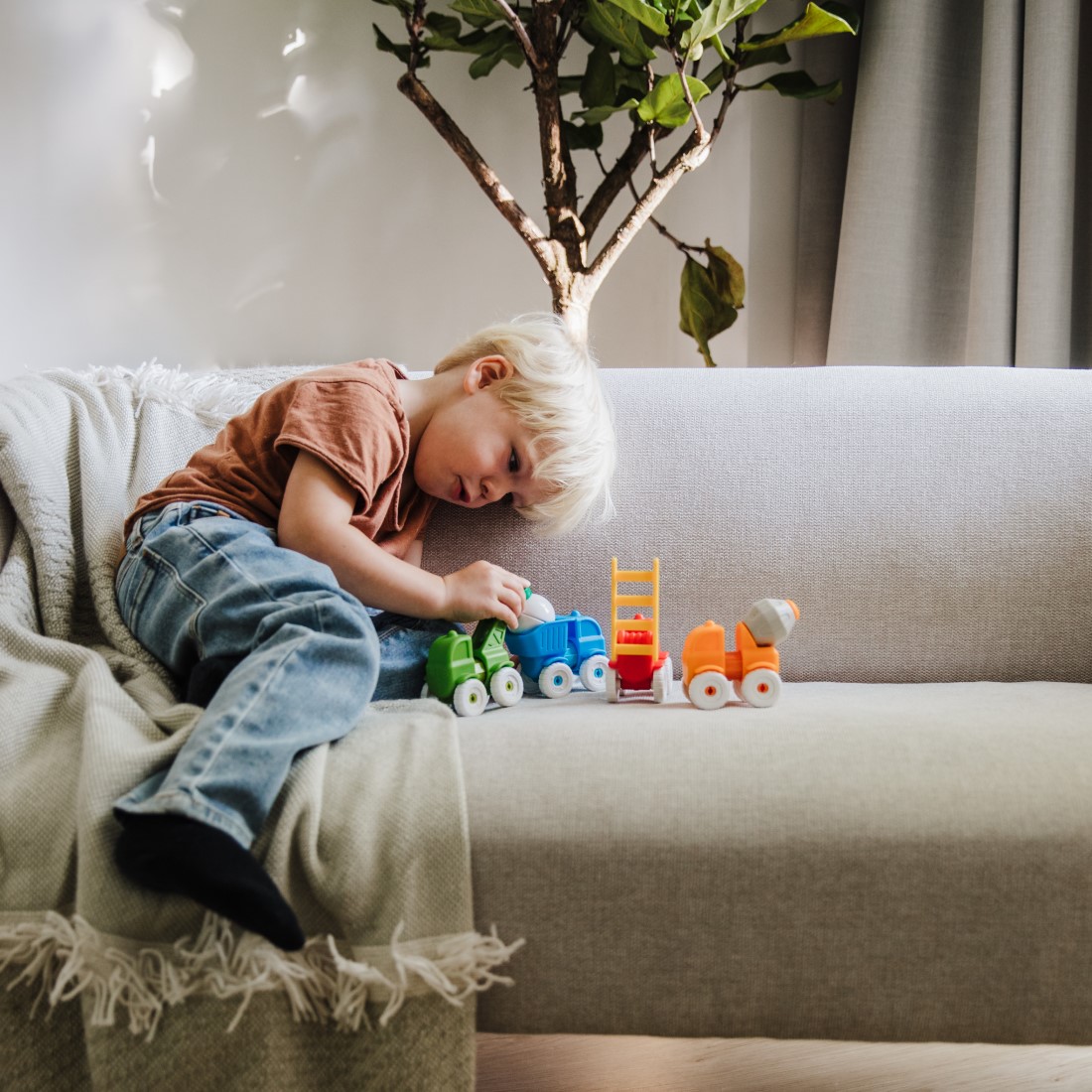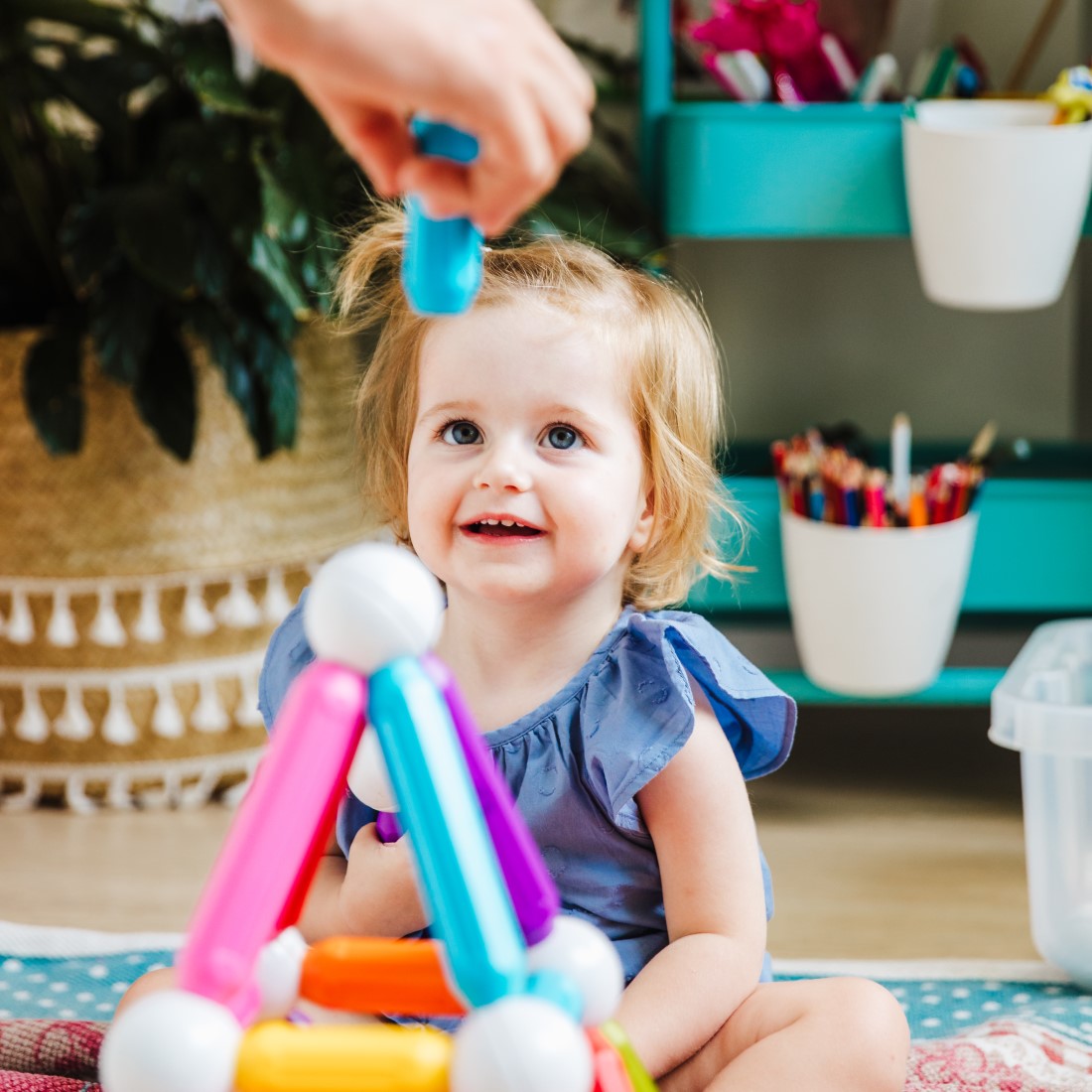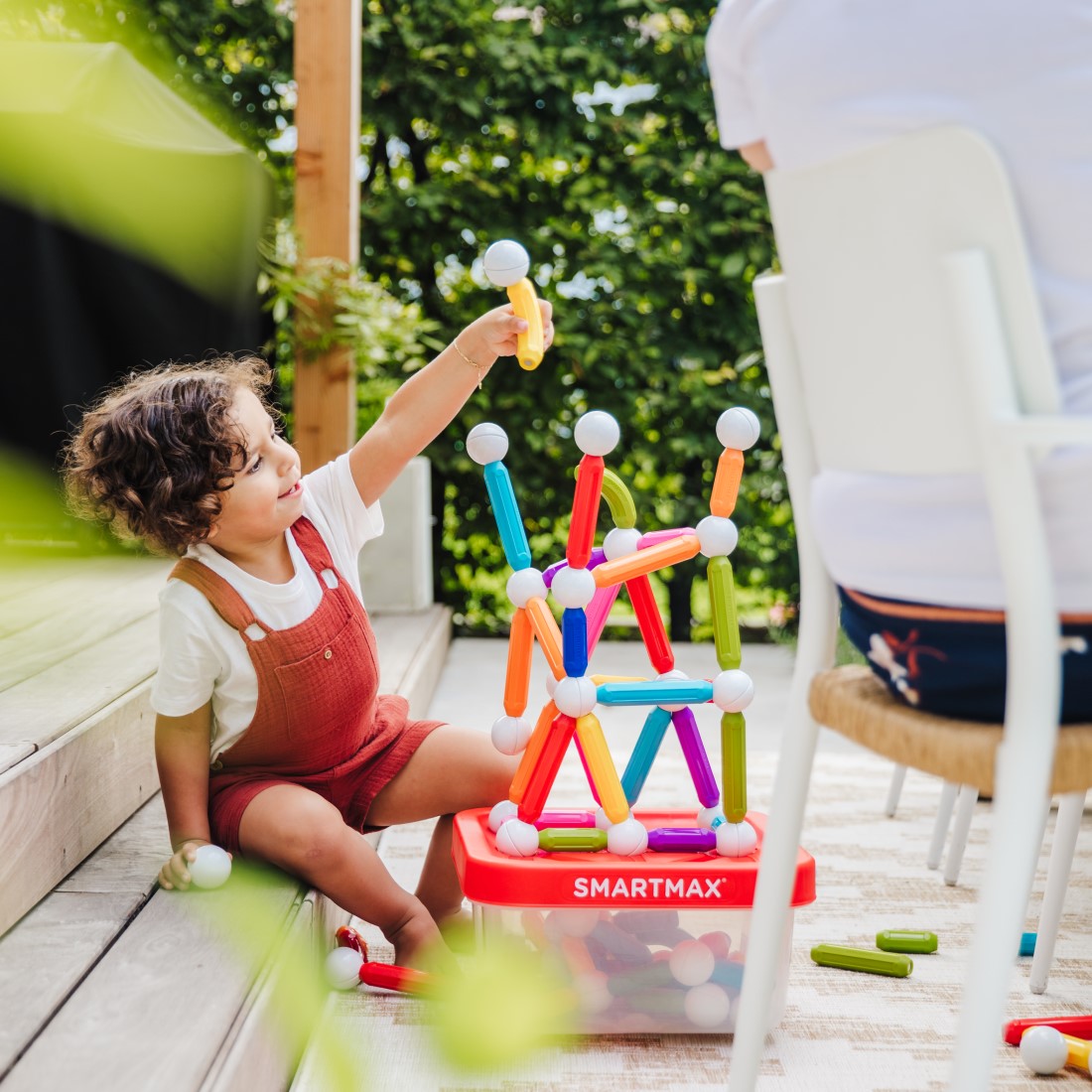Hello world
Playing with parents is usually one of your infants’ first encounters with recreation time. During playtime, babies start to develop motor skills, creativity, emotion regulation and memory. When adding a play-partner to the mix, kids will also pick up on social skills, communication, and language skills. It’s in this stage that you can start to see kid’s lifelong interests. When playing as a parent together with your kids, your children get introduced to another, more mature manner of playing that they would not encounter when playing with siblings or other kids. They for example get to learn how grownups interact in social situations which helps them to make sense of the world.


Bonding
Did you know that playing with your child does not only have benefits for your kid, but also for you? Adults who interact affectionately with their kids produce oxytocin, a natural chemical also called ‘the love hormone’, which improves pro-social behaviour like bonding cues, trust, and positive emotions towards your child. On top of that, one-on-one play time with your little one improves communication between you two, opening the door to sharing emotions and feelings. It makes you more approachable and it makes kids feel safe and appreciated. This contributes to the emotional well-being and growth of children. So have fun and build memories together!
How to make a difference?
This is both easy and difficult at the same time: make time in your schedule daily to spend some quality one-on-one time with your toddler. It doesn’t really matter if you are building a SmartMax construction together or reading a book. Children like structure, so, if possible, pick a moment around the same time for consistency. Interact during this precious moment with your little one: listen actively, ask questions, discover their interests, and let them safely express themselves to you.
Teachable moments
Another way to making a difference, is by making the moment teachable. Play a game that teaches problem solving skills or stimulates talking like My First Acrobats or My First Totem. This way, you do not only bound, but you also use this time to demonstrate problem solving, patience, social skills, and concepts such as colours, directions, and shapes.

More information and sources:
Pregnancy Birth & Baby (April 2022). Playing with your toddler. Pregnancy, Birth & Baby. https://www.pregnancybirthbaby.org.au/playing-with-your-toddler
Singer, Dorothy G; Singer, Jerome L. (31 December 1995). Playing with Baby Begins at Birth: A Parent's Guide. The Journal of Perinatal Education; New York Vol. 4, Iss. 4: 1-9. https://www.proquest.com/docview/203585407
Exchange Family Center (10 April 2018). Connecting With Your Child Through Play: The Surprising Benefits of Parent-Child Playtime. Exchange Family Center. https://www.exchangefamilycenter.org/exchange-family-center-blog/2018/4/10/connecting-with-your-child-through-play-the-surprising-benefits-of-parent-child-playtime
Mactavish, Jennifer & Schleien, Stuart. (January 1998). Playing together growing together: Parents' perspectives on the benefits of family recreation in families that include children with a developmental disability. Therapeutic Recreation Journal. 32. http://www.bctra.org/wp-content/uploads/tr_journals/1152-4512-1-PB.pdf
Alexandra Owens (23 September 2021). Tell Me All I Need to Know About Oxytocin. Psycom. https://www.psycom.net/oxytocin

